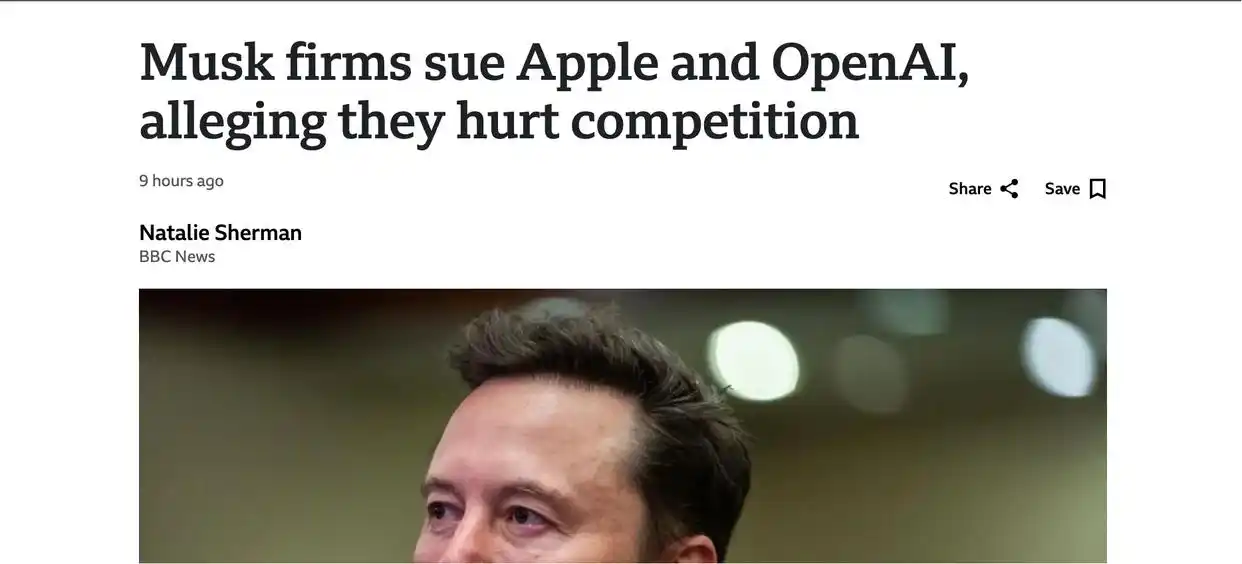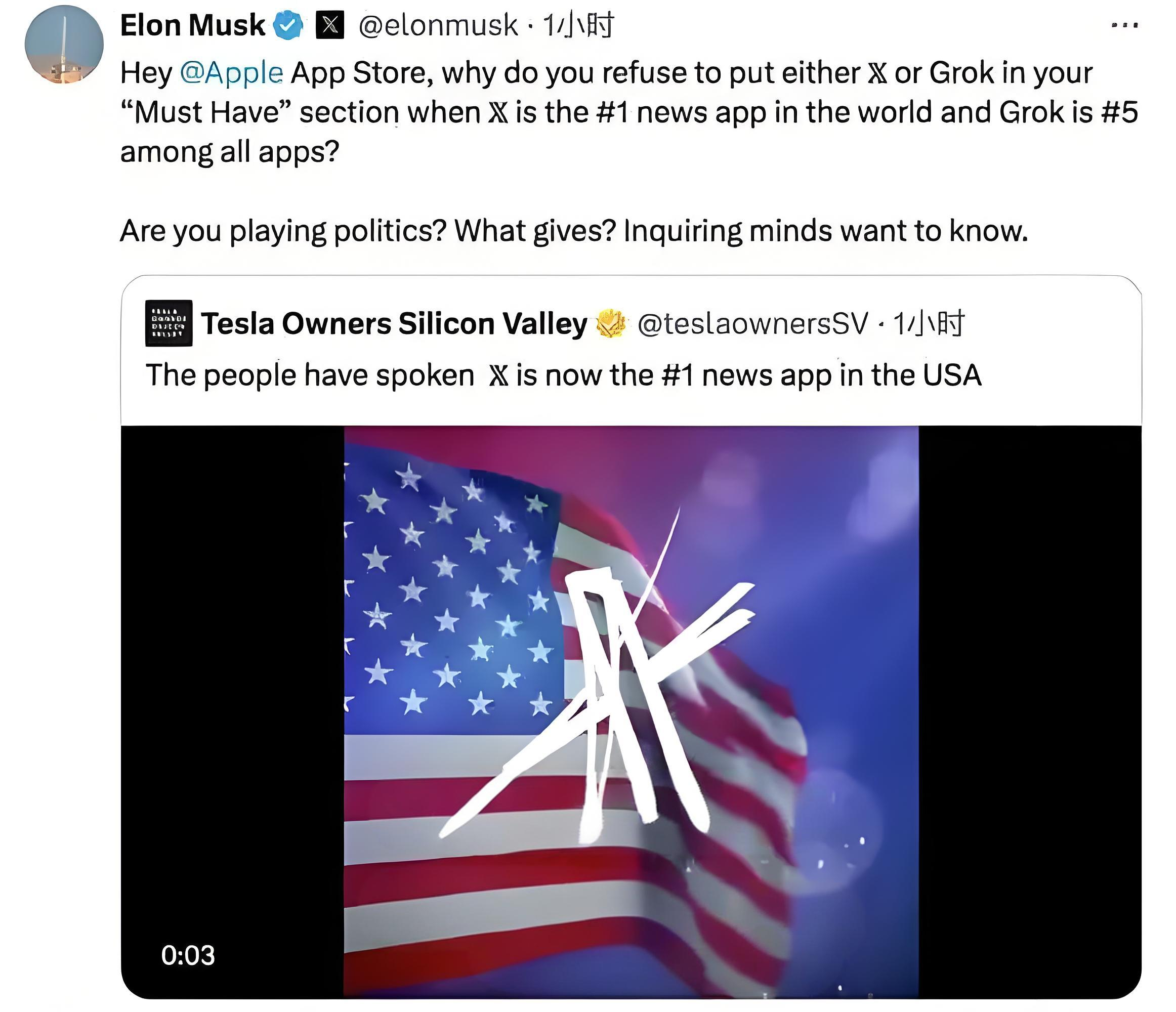xAI Sues Apple and OpenAI, Alleging Illegal Collusion to Monopolize AI Market
On August 25, 2025, Elon Musk’s artificial intelligence company xAI and social platform X formally filed a lawsuit in a federal court in Texas, accusing Apple and OpenAI of illegally monopolizing the artificial intelligence market through an "exclusive agreement," stifling competition, and depriving consumers of choice.

This lawsuit marks a significant escalation in the confrontation between two global AI giants and is expected to have far-reaching implications for the future development of artificial intelligence.
In a 61-page filing, xAI describes Apple and OpenAI as "two monopolists," alleging that they have joined forces to ensure their continued dominance in an AI-driven world.
xAI claims that Apple’s partnership with OpenAI has made ChatGPT "the only generative AI chatbot integrated into the iPhone," and that this exclusive arrangement "locks in the market to maintain their monopoly." The lawsuit accuses Apple of manipulating App Store rankings and delaying app updates, putting xAI’s Grok at a disadvantage. Elon Musk himself took to social media, stating, "Grok has a million reviews with a 4.9-star average, yet Apple refuses to feature Grok on any of its lists."

The complaint includes detailed market share data highlighting the dominance of both parties. According to the filing, OpenAI controls approximately 80% of the U.S. generative AI chatbot market, while Apple holds about 65% of the smartphone market. xAI alleges that this combined market dominance "hinders fair competition in the AI field." The partnership between Apple and OpenAI allows ChatGPT to benefit from billions of user prompts across hundreds of millions of iPhones, thereby improving its models and creating a significant competitive advantage.
Additionally, the historical relationship between Elon Musk and Sam Altman adds a personal dimension to this legal battle. The two co-founded OpenAI in 2015 but later parted ways and became fierce competitors. Elon Musk has accused Sam Altman of leading OpenAI away from its original mission under the guise of public benefit. This is the second time Elon Musk has sued OpenAI; previously, he filed a lawsuit in a California federal court against OpenAI and Sam Altman, seeking to prevent its transition from a nonprofit to a for-profit entity.
In response to the allegations, Apple has previously stated that its App Store is "fair and unbiased" and defended the fairness of its partnership with OpenAI. An Apple spokesperson claimed that the company only works with "the best products that deliver the best user experience." Apple emphasized that the App Store is designed to be impartial, with recommendations based on objective criteria aimed at providing users a safe environment to explore while ensuring a level playing field for developers.
OpenAI has taken a firm stance against the lawsuit. A spokesperson stated, "This latest suit is consistent with Mr. Musk’s pattern of ongoing harassment."
Sam Altman himself has previously retaliated against Elon Musk’s criticisms, responding on social media: "Given that I’ve heard allegations that Elon Musk manipulates X for his personal and corporate benefit, harming his competitors and those he dislikes, his remarks are astonishing." He even expressed hope that someone would investigate Elon Musk’s actions.
Beyond personal grievances, this lawsuit could have profound implications for the AI industry. Analysts suggest that the legal action may pressure Apple into striking a distribution deal with xAI similar to its agreement with OpenAI, promoting its AI products more fairly on the App Store.
If xAI prevails, Apple might open its ecosystem to more AI companies, similar to the deal where Google pays Apple $20 billion annually to remain the default search engine.
If Apple and OpenAI successfully defend themselves, the current partnership model could be solidified, maintaining ChatGPT’s privileged position within the iPhone ecosystem.
Regardless of the outcome, this lawsuit has already forced the tech industry to reconsider the nature of AI competition.



